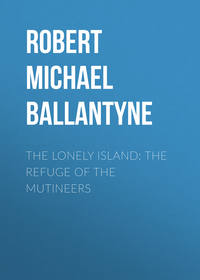Kitabı oku: «The Lonely Island: The Refuge of the Mutineers», sayfa 12
Bir şeyler ters gitti, lütfen daha sonra tekrar deneyin
Türler ve etiketler
Yaş sınırı:
0+Litres'teki yayın tarihi:
30 mart 2019Hacim:
310 s. 1 illüstrasyonTelif hakkı:
Public Domain